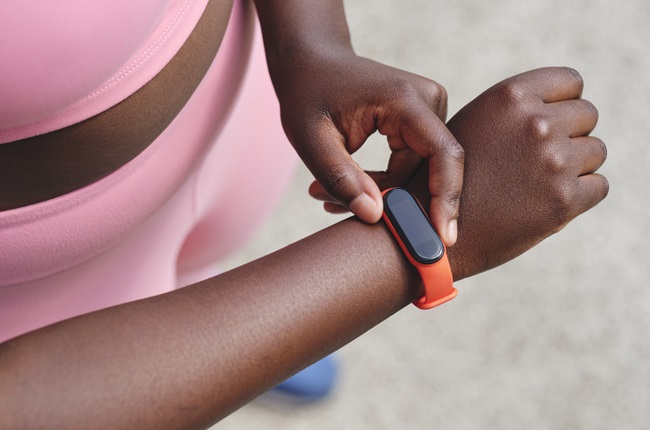
- A recent study found that the wristband of your smartwatch could harbour potentially pathogenic bacteria.
- Researchers from the Florida Atlantic University tested the wristbands of 20 participants.
- Bacteria found included Staphylococcus and Pseudomonas.
- The study also found that disinfectants like Lysol Disinfectant Spray and 70% ethanol were highly effective for reducing wristband bacteria counts.
When was the last time you cleaned the wristband of your smartwatch? If you're anything like me, the answer is a while ago. Now and again, I will remove my watch to clean the black rubber straps, but it doesn't go beyond a warm, wet cloth. It turns out I should have been using something much stronger and wiping it down more often than every two weeks.
According to a study by the Florida Atlantic University, the wristband of your watch is a playground for a host of harmful bacteria, and most people never think to clean it.
For the study, researchers from the university's Charles E. Schmidt College of Science tested wristbands from 20 participants to determine the risk of harbouring potentially pathogenic bacteria. The subjects of the study were "actively engaged in their daily routines... recruited and sampled on the spot."
READ MORE | From beauty blenders to Gua Shas: An up-close look at how dirty your makeup tools are
Bacteria found
Researchers examined the type of bacteria found as well their distribution on the wristband's surface. According to the study, the most commonly found bacteria were "common skin residents, of the genera Staphylococcus and Pseudomonas, and intestinal symbionts, like of the genera Escherichia [specifically E. coli]."
Which wristbands harbour the most bacteria?
The number of bacteria differed depending on the type of wristband. The study found that rubber and plastic wristbands had higher counts of bacteria. Metal bands, like gold and silver, on the other hand, had little to no bacteria.
READ MORE | Reusable condoms and silkworm guts: Old contraceptives that prove the pill was a medical breakthrough
How to clean wristbands
Researchers also tested which disinfectants worked best to kill accumulated bacteria. They tested Lysol Disinfectant Spray, 70% ethanol, and apple cider vinegar.
The Lysol spray and 70% ethanol solution proved most effective, killing bacteria within 30 seconds on cloth and rubber wristbands. While the apple cider vinegar still helped, it was not as potent and required a full two minutes of exposure to reduce bacteria counts on plastic wristbands.
Still, researchers suggest that all disinfectants be used as recommended to give them enough time to reduce bacteria. For example, "the recommended usage time for Lysol Disinfectant Spray is 5 minutes for the bacteria we identified, and the United States Center for Disease Control (CDC) found that 70% ethanol is effective against P. aeruginosa, E. coli, and S. aureus after 10 seconds."
The moral of the story is to clean your wristbands and ensure you're doing so often enough.
"Wristbands, often worn daily without routine cleaning, may accumulate potentially pathogenic bacteria. However, the quantity and taxonomy of bacteria found on the wristbands in this experiment show that there is a need for regular and popular sanitation of these surfaces."




 Publications
Publications
 Partners
Partners












